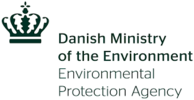
Pollinators and natural enemies of pesticides are crucial for the plant production but are also important parts of the functional biodiversity of the agricultural landscape. Concerns about the decline of insects have led farmers to establish flower strips, either in the form of voluntary initiatives as flower strips along field edges or as regulated environmental focus areas (MFOs). From a biodiversity point of view, flower strips are only a supplement to improvements in the quantity and quality of habitats, but they are attractive to farmers as a way of making biodiversity-friendly actions visible. Up to now, most attention has been paid to pollinators' use of flower strips but going forward the farmers must also comply with the IPM principles, which require them to "protect natural enemies through the use of organic infrastructures". Therefore, it is relevant to develop flower strips, which are also aimed at natural enemies of pests. Existing flower strips vary; annuals, biennials, or perennials, and sown with different seed mixtures in spring or autumn. There is a lack of knowledge about the seasonal development of flower resources in the strips in relation to sowing time and age. Likewise, the value of individual plant species and species mixtures for natural enemies and pollinators under Danish conditions is not well documented.
This project aims to fill these knowledge gaps and make it possible to design species mixtures consisting of plants aimed at relevant pollinators and natural enemies. We focus on rapeseed, which has many pests, a high insecticide load and where pest control is challenged by insecticide resistance. From an ongoing DEPA project, we know that parasitic wasps that attack the three most important rapeseed pests are widespread in Danish fields. "Tailor-made flower strips" for rapeseed must therefore be designed and established so that they benefit both parasitic wasps and relevant pollinators.
In plot experiments at two sites, we investigate 1) how plant species relevant to pollinators and rapeseed parasitic wasps function agronomically and biologically, 2) how parasitic wasps and pollinators utilize plant species as food sources and for reproduction, in monoculture and in flower mixtures and 3) whether wild bees and parasitic wasps overwinter in flower strips. The knowledge generated will enable future designs of crop-specific flower strips that support local populations of natural enemies and pollinators, with a potential reduction in insecticide use and an increased yield as a result.
Sort by: : Date | Title
2021-2025
Danish Environmental Protection Agency
